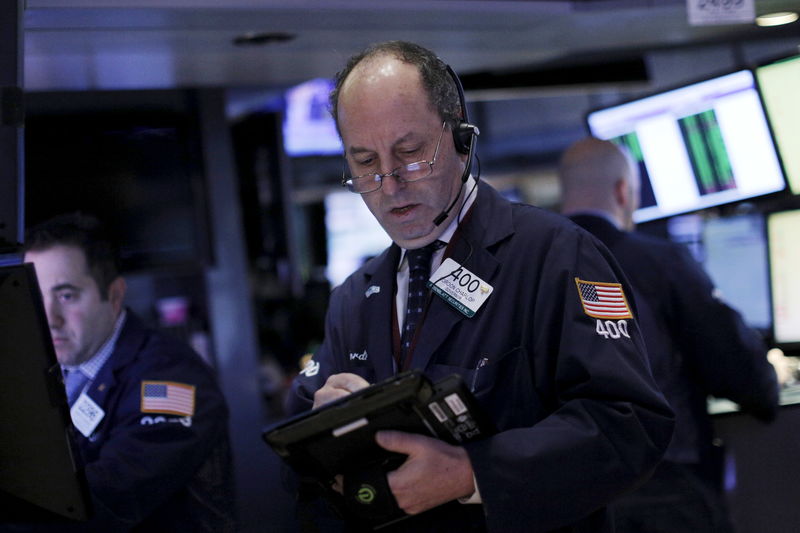By Abhiram Nandakumar
(Reuters) - Wall Street moved deep into the red on Wednesday, with the S&P 500 hitting its lowest since February 2014 and extending this year's selloff as oil prices continued to plummet unabated.
The rout was across the board: all 30 Dow components and all 10 major S&P sectors were in the red, with nine down more than 2 percent. The small-cap Russell's 2000 index fell 3.6 percent.
The New York Stock Exchange recorded 1,387 stocks hitting new 52-week lows, while 866 sank to new lows on the Nasdaq, the most on a single day since Aug. 24 for both exchanges.
The beaten-down S&P energy sector's 5 percent fall led the decliners. Exxon (N:XOM) dropped 4.6 percent and Chevron (N:CVX) slumped 6.3 percent, its steepest since August 2011.
U.S. crude prices sank 6.6 percent and Brent crude fell 4.7 percent as a supply glut bumped up against bearish financial news that deepened worries over demand. [O/R]
"For your average investor, when they see today's news, it's going to spur some angst and the big question that everybody has is 'Should I be in cash?'," said Kim Forrest, senior equity research analyst at Fort Pitt Capital Group in Pittsburgh.
"The fear is 'Is tomorrow going to bring more selling?'. People are not even thinking about today, they're thinking about tomorrow," she said.
Collapsing oil prices and fears of a slowdown in China, the world's second-largest economy and a key market for U.S. companies, has led to the S&P 500 falling 8 percent this year before Wednesday's losses.
At 12:56 a.m. ET the Dow Jones industrial average (DJI) was down 472.46 points, or 2.95 percent, at 15,543.56.
The S&P 500 (SPX) was down 56.31 points, or 2.99 percent, at 1,825.02. The index briefly hit a low of 1,812.29, its lowest since February 2014.
The Nasdaq Composite index (IXIC) was down 123.36 points, or 2.76 percent, at 4,353.59. The index has closed higher in only two of the 12 trading sessions this year.
The CBOE volatility index (VIX), Wall Street's fear gauge, jumped 18 percent to 30.75.
Gold, a traditional safe haven in times of turmoil, rose more than 1 percent. U.S. Treasuries also rallied, with 30-year yields at their lowest in five months.
IBM (IBM) fell 5 percent to $121.71 and Goldman Sachs (N:GS) dropped 2.5 percent to $152.89 after the Dow components issued disappointing earnings reports.
IBM weighed the most on the Dow, while Apple's (O:AAPL) 2.2 percent drop weighed the most on the Nasdaq and the S&P 500.
Netflix (O:NFLX) was also swept up by the downbeat sentiment, dropping 6 percent to $101.34, despite reporting a better-than-expected growth in its subscriber base.
Declining issues outnumbered advancing ones on the NYSE by 3,028 to 114. On the Nasdaq, 2,460 issues fell and 372 advanced.

The S&P 500 index showed no new 52-week highs and 182 new lows, while the Nasdaq recorded three new highs and 703 lows.